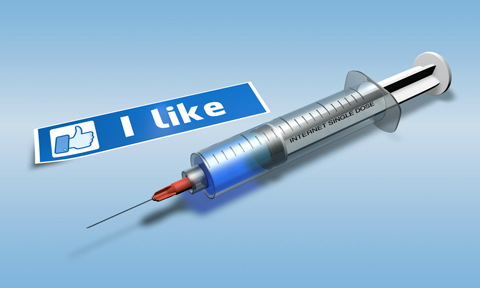Obesity and dramatic overweight are a huge global problem, costing an estimated $450 billion per year in the U.S. alone, where more than two-thirds of people are overweight and an estimated 35.7% are considered obese. But that's just physical obesity. The exact same processes that companies use to trick us into wanting to eat and eat are also being used to get us to spend more and more time online.
CRAVABILITY TRANSLATES INTO PROSPERITY
The more people eat (and consume, in general), the better it is for those that provide food. That's the point of the estimated 150 pounds of food additives (mostly sugar, yeast, antioxidants, MSG, etc) that every consumer unwittingly ingests every single year. These substances are the lubricants of over-consumption, not only making food more pretty and durable but also artfully making it taste better, stringing us along by engineering a need-for-more so that it becomes very hard to find the exit from that kingdom of happy and endless consumption. That is the same principle that is happening when you use Facebook or your smartphone. The food industry actually calls this "cravability"-- and in the world of technology this is often referred to as "indispensability" or, more benignly, "user engagement."
CRAVING AND ADDICTION AS BUSINESS MODEL
Generating this kind of craving in such a hidden way clearly is a powerful business-model--in both food as well as in technology.
A new kind of obesity is now looming with our information, data, and media diet. We have only scratched the surface, but there is already way too much of information available, and it is way too tasty, too cheap, and too rich. Not a single day goes by without yet another service offering us more updates from our increasing number of friends, more ways to be disrupted by incessant notifications on pretty much any platform (witness the growing popularity of smart-watches), more news, more music, more movies, more, better and cheaper mobile devices, and a seemingly total social connectivity. Many of us are likely to pig out like we're at an all-you-can-eat buffet.
The overlord of digital nourishment is Google, of course, and their (don't be) evil genius lies in combining a huge number of platforms into a seamless, inter-connected kingdom that is so utterly efficient and convenient, so discretely addictive, and so utterly fattening to our brains, eyes, ears, and even our hearts and souls. Yet, if indeed Google knows me better than my wife, surely we must start to consider who is serving whom.
THE FIVE-YEAR HORIZON
Every piece of information, every picture, every video, every kernel of data, every location and every uttering by every connected human is likely to be monitored, collected, connected, and refined into useable information. Clearly, this could be heaven (if you are a marketer, a vendor of those tools, or just a super-geek) or it could be hell, given the distinct possibility that the very same super-charged information that will drive marketing will also enable a perpetual global surveillance. Not only will we be obese with information, but we will also be digitally naked.
TECHNOLOGY: NO LONGER IF WE CAN, BUT IF WE SHOULD
I predict that the question of whether a technology can do something will very soon be replaced by the more relevant question of it should do something (we're already starting to see this with the uproar over Google Glass).
Put in the context of digital obesity, the bottom line is this: just because all of this information is becoming instantly and freely available, do we need to consume it at all times? Do we really need an app to tell us where in the store the music section is located, do we really need to cross-check our DNA before we go on a date, and do we really need to count our steps so that our fitness status can be updated on a social network?
Technology has no ethics, but humans without ethics become machines. Technology will absolutely stay on its exponential course and make information wider, deeper, and faster. Unless we find a way to deal with this constant tsunami of possibilities, we may ultimately all become digitally obese, or even worse, become a part of the machine ourselves.
FROM MORE IS BETTER TO LESS IS BEST
In the end, it comes down to this: just as with food, we urgently need to find a personal balance in our information and media diet, and define when, what and how much we information we ‘eat’, and when we need to reduce our intake, take the time to digest, be in the moment, or even practice fasting or just staying a little bit hungry. Yes, there is a real business opportunity in this as well--consider that offline as the new luxury.
I believe that in the next few years, our digital consumption habits will transition from the traditional offline and Internet 1.0 "more is better" paradigm to the concept of "less is best." I also predict that de-teching, un-plugging, and the rise of "mindfulness" as a lifestyle will all become a big part of that backlash against digital obesity, in 2014.
In striking that crucial balance between ignorance and omniscience, we may want to take a hint from Albert Einstein who famously said that “Everything should be as simple as possible, but not simpler."


